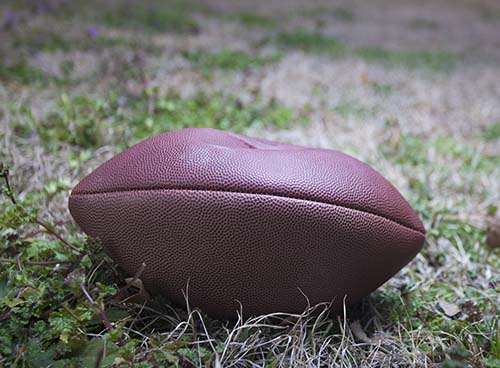NFL, ABI Walk Hand In Hand Over Players and Fans
 If alcohol money is the lifeblood of the NFL, it is also an open wound on the game.
If alcohol money is the lifeblood of the NFL, it is also an open wound on the game.
The Super Bowl is inextricably linked with drinking, in no smart part due to the efforts of Big Alcohol. Anheuser-Busch InBev (ABI), the brewing giant behind Budweiser, Bud Light, and scores of other brands, has poured hundreds of millions of dollars into the league to become the exclusive beer sponsor for the Super Bowl. That privilege does not just come with outsized control over advertising, it comes with the ability to reshape the narrative of the event around its sponsors.
Yet however the NFL has benefitted from beer money financially, this season was thoroughly tainted with alcohol-related harm. In November, Raiders wide receiver Henry Ruggs III, driving while intoxicated, fatally crashed into another vehicle. (Last week, a Washington player was also involved in a fatal crash, but it is not clear whether or not alcohol was involved.) Ruggs III was the latest in a line of NFL players involved in fatal DUIs; counting nonfatal events, he is the sixth player this season.
https://www.nfl.com/news/prosecutor-former-raiders-wr-henry-ruggs-iii-driving-over-150-mph-before-fatal-c https://www.nbcsports.com/bayarea/49ers/how-nfl-has-handled-players-accused-dui-resulting-death https://databases.usatoday.com/nfl-arrests/NFL teams do have a set standard for punishment of nonfelonious DUI, a three-game suspension. However, it is not clear what preventive resources are available, or mandatory. This is not just important from the perspective that prevention is always more powerful than punishment. The NFL is still contending with the fallout from decades of undiagnosed, untreated traumatic brain injury—particularly chronic traumatic encephalopathy (CTE)—among its current and former players. Although the physical damage to the brain producing CTE comes from hard contact during football games, research shows that alcohol use dramatically worsens the symptoms of CTE—even if the alcohol use was prior to the trauma event. The outcomes from CTE are frighteningly stark: executive functioning issues, depression, suicide, and dementia.
But just as the NFL had spent decades glossing over the damage caused by alcohol to its players, it remains happy to ignore the harms to fans. Super Bowl Sunday is consistently among the deadliest driving days of the year. Reports from BACTrack, makers of consumer breathalyzers, showed its users were almost as likely to report a BAC over 0.9 on Super Bowl Sunday as they were on New Year’s Eve. And this ignores the fights and crashes that have become so commonly associated with football games that they are brushed off
Nonetheless, the hype machine for this Sunday’s ad campaigns is already in full swing. Among the “highlights”:
• Fresh off a grotesquely misleading charade in which it claimed to be donating its ad time, while actually pulling only one of its many products from the lineup, ABI continues its trend of profiteering from emergency with an ad showing a signature Budweiser Clydesdale returning from a year-long injury. (The COVID-19 pandemic is far from over and alcohol use exacerbates risk and symptoms.)• The “kiddification” of products continues as Bud Light introduces a “hard soda” line, promoted through a fantasy-themed ad featuring Guy Fieri.
• The growing desperation to portray alcohol as “healthy” continues as ABI leans heavily into a “zero-carb” seltzer (alcohol itself contains calories) as well as its athletics-branded Michelob line.
• In a late contender for missing the point of… everything, Boston Beer, the brewers of Sam Adams, have a regional buy co-branded with Boston Dynamics, a literal defense contractor. The ad combines security guards drinking on the job with robots akin to the ones that have been used to harass residents of Manhattan housing projects. It is a true tour-de-force of making money while whitewashing the military industrial complex.
The result is an embarrassment of contempt for the NFL’s employees and fans. It is time to Free the Bowl. Get the toxic impact of Big Alcohol’s money out football, and maybe we can keep our football heroes out of jail.
READ MORE about our campaign to FREE OUR SPORTS®.
READ MORE about AB InBev’s sleazy COVID-19 ad “donation”.
READ MORE about the blitz of youth-oriented alcopops in NFL ads.
Help us hold Big Alcohol accountable for the harm its products cause.
| GET ACTION ALERTS AND eNEWS |
STAY CONNECTED    |
CONTACT US 24 Belvedere St. San Rafael, CA 94901 415-456-5692 |
SUPPORT US Terms of Service & Privacy Policy |


